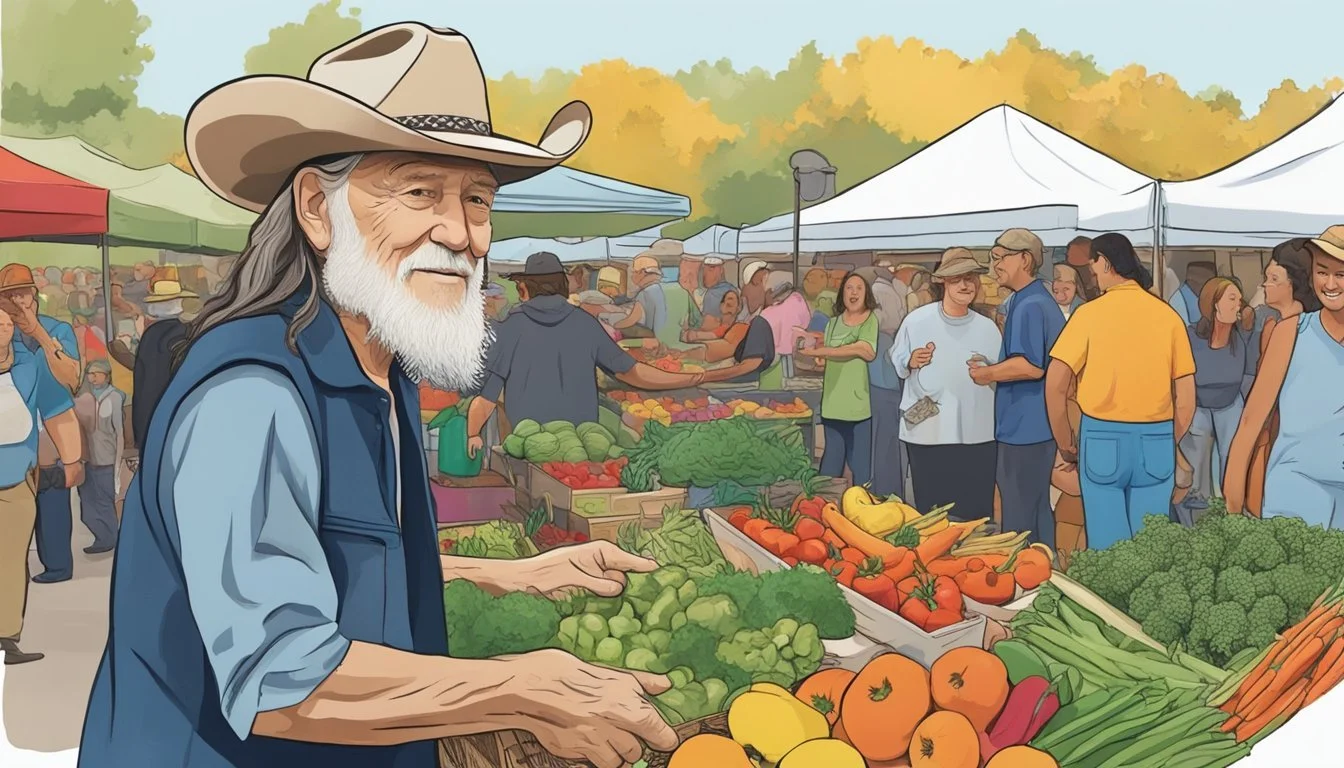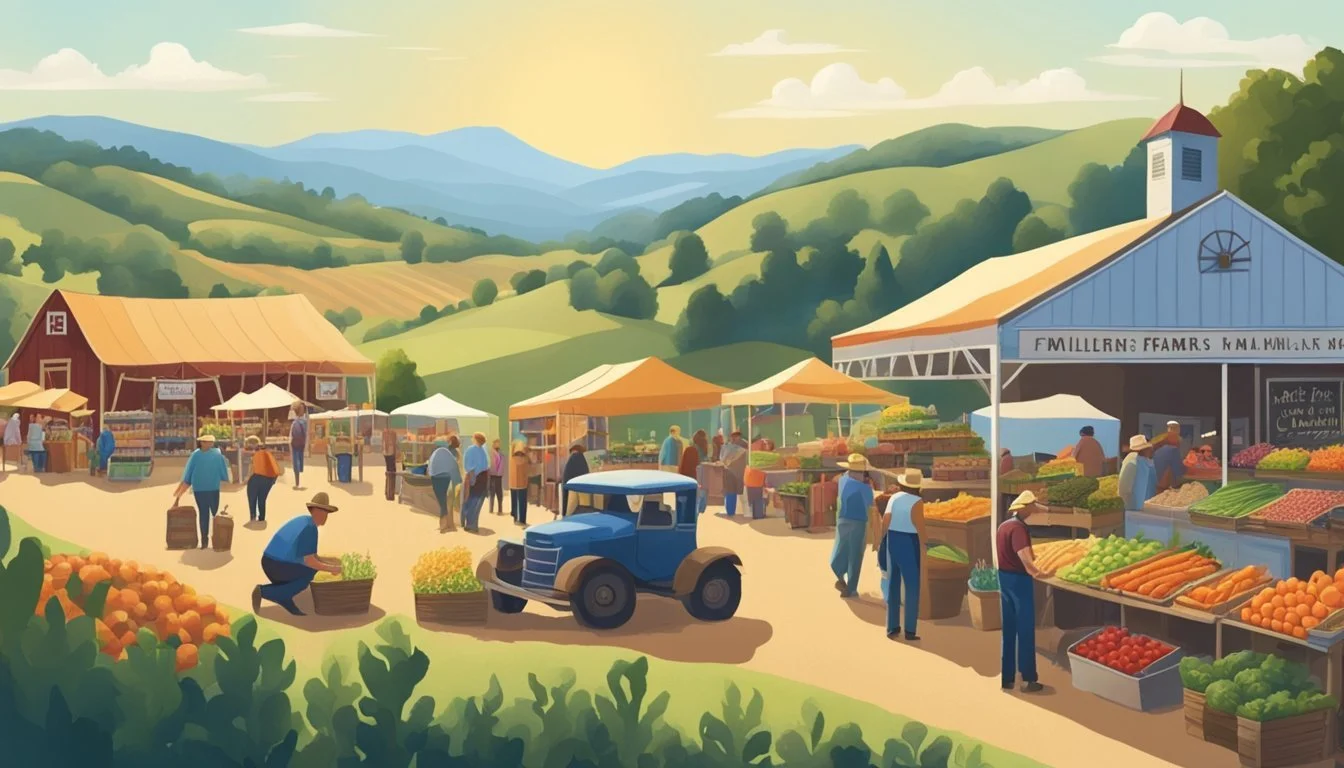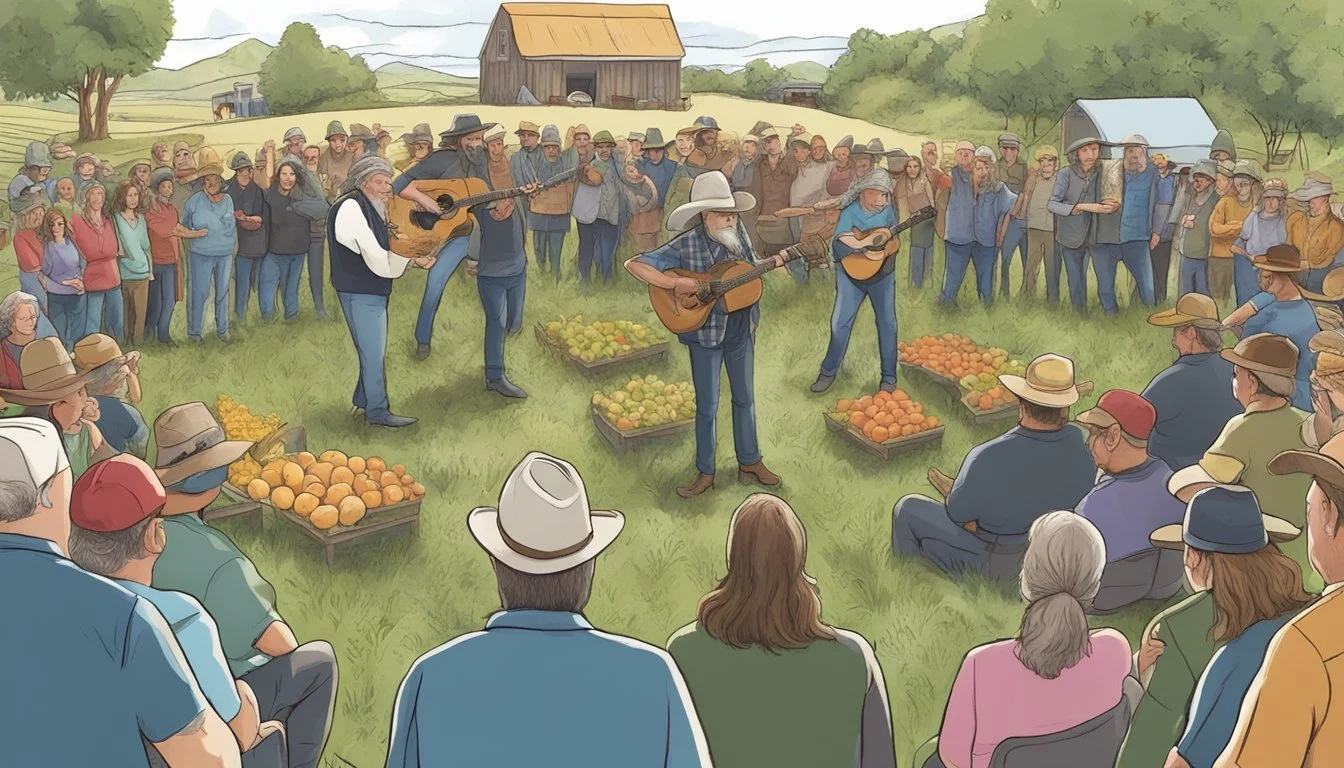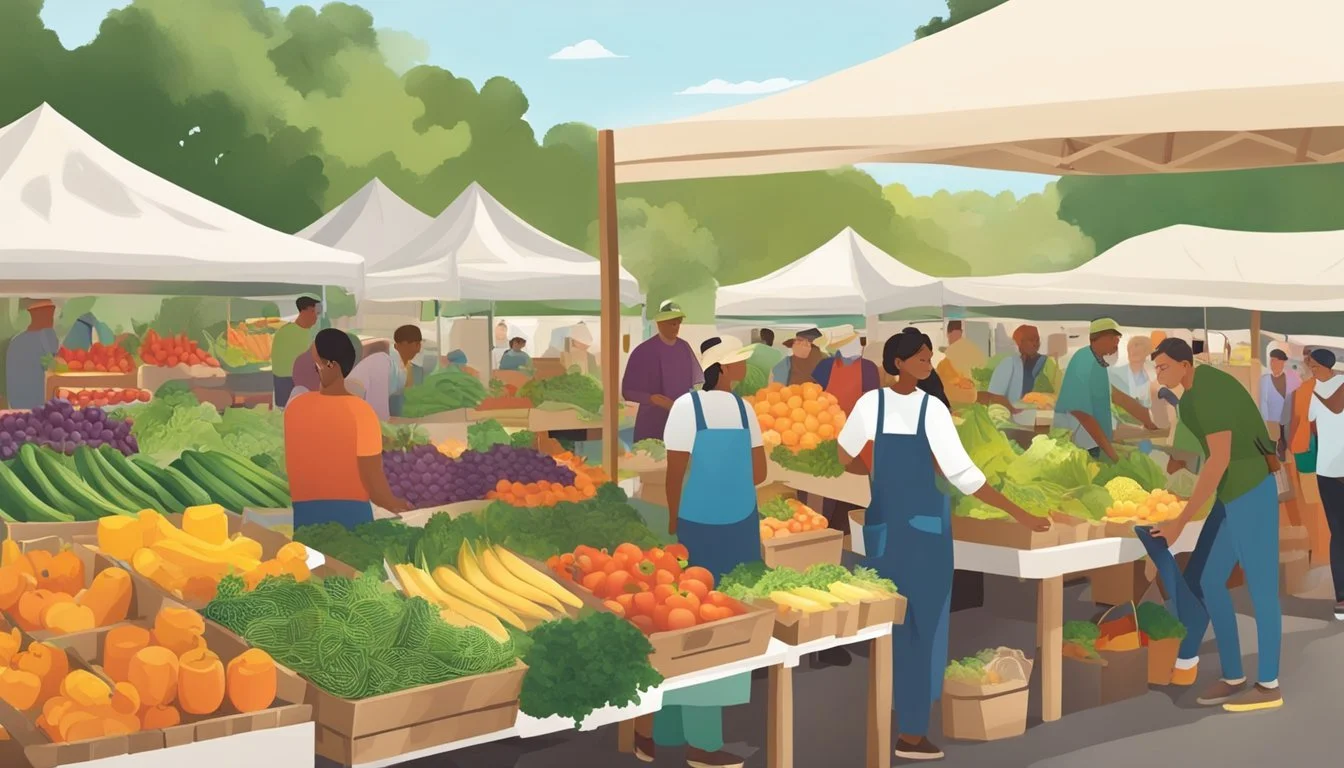Willie Nelson Local Food Movements: The Country Legend Cultivating Change!
Willie Nelson, the iconic country music legend, has long been a vocal advocate for local food movements. His support stems from a deep connection to rural America and a desire to protect family farms. Nelson's involvement in these grassroots efforts has helped raise awareness and inspire change across the country.
Nelson's dedication to local food movements is exemplified through his work with Farm Aid, an organization he co-founded in 1985 to support family farmers and promote sustainable agriculture. This initiative has become a cornerstone of the local food movement, advocating for policies that benefit small-scale farmers and encourage consumers to buy locally produced food.
The country star's influence extends beyond his musical talents. Nelson's frequent stops at diners and truck stops during his tours in the 1980s allowed him to connect with everyday Americans and gain insight into the challenges faced by rural communities. This firsthand experience has fueled his passion for supporting local food systems and preserving the traditional farming way of life.
Willie Nelson's Advocacy for Family Farmers
Willie Nelson has been a tireless champion for family farmers, using his platform and influence to support rural communities and sustainable agriculture. His efforts have had a significant impact on American farming and culture.
Farm Aid's Origins and Mission
Farm Aid emerged in 1985 during a severe agricultural crisis. Willie Nelson, along with Neil Young and John Mellencamp, organized the first benefit concert to raise awareness and funds for struggling family farmers. The event was a response to the dairy crisis and widespread farm foreclosures.
Farm Aid has since become an annual tradition, raising millions of dollars to support family farmers across the United States. The organization provides resources, grants, and disaster relief to those in need. It also promotes policies that benefit small-scale agriculture and rural communities.
Nelson's commitment to the cause has been unwavering. He has consistently used his celebrity status to bring attention to the challenges faced by American farmers.
Influence on Rural America
Willie Nelson's advocacy has extended beyond fundraising concerts. He has actively lobbied Congress on behalf of farmers, pushing for legislation to protect small farms from corporate takeovers.
His efforts have helped shine a spotlight on rural issues often overlooked by mainstream media. Nelson's work has brought attention to the struggles of family farmers, including financial hardships, market pressures, and environmental challenges.
Through Farm Aid and other initiatives, Nelson has helped create a support network for rural residents. This network provides resources, information, and a sense of community for those living and working in agricultural areas.
Supporting Sustainable Farming
Nelson has been a vocal proponent of sustainable agriculture practices. He advocates for farming methods that prioritize soil health, biodiversity, and environmental stewardship.
His support for family farm food emphasizes the importance of local, organic production. Nelson has promoted farmers' markets and community-supported agriculture programs as ways to connect consumers directly with food producers.
By highlighting these sustainable practices, Nelson has helped educate the public about the benefits of supporting local, environmentally-friendly farming methods. His advocacy has contributed to a growing movement towards more sustainable food systems.
Cultural Impact through Country Music
Willie Nelson's music has been a powerful tool in his advocacy for family farmers. His songs often touch on rural themes, celebrating the farming lifestyle and addressing the challenges faced by agricultural communities.
His annual Farm Aid concerts blend music with activism, attracting diverse audiences and artists. These events have become cultural touchstones, raising awareness about farming issues among music fans who might not otherwise engage with agricultural topics.
Nelson's influence extends beyond his own performances. He has inspired other country music artists to use their platforms for social causes, particularly those related to rural America and sustainable farming.
The Emergence and Growth of Local Food Movements
Local food movements have gained significant momentum in recent decades, reshaping how communities think about and interact with their food systems. These grassroots efforts prioritize locally-sourced food as a means to improve health, support local economies, and promote environmental sustainability.
Definition and Core Principles
Local food movements focus on producing, distributing, and consuming food within a defined geographic area. They emphasize direct connections between farmers and consumers through channels like farmers markets and community-supported agriculture (CSA) programs.
Core principles include:
Supporting small-scale, local farmers
Promoting sustainable farming practices
Increasing food transparency and traceability
Enhancing community food security
Preserving regional food cultures and traditions
These movements aim to create resilient community food systems that benefit both producers and consumers while reducing reliance on industrial agriculture.
Community and Economic Benefits
Local food movements contribute significantly to community development and local economies. They create jobs, keep money circulating within communities, and foster social connections.
Key benefits include:
Increased farmer income through direct sales
Job creation in food production, processing, and distribution
Support for rural communities and economies
Enhanced food access in underserved areas
Strengthened social ties through food-centered community events
Farmers markets serve as vibrant community hubs, offering fresh produce and artisanal products while facilitating direct interactions between producers and consumers.
Environmental Advantages
Local food movements often promote ecological production practices that benefit the environment and address climate change concerns. By reducing food transportation distances, these systems can lower greenhouse gas emissions associated with long-distance shipping.
Environmental benefits include:
Reduced carbon footprint from shorter supply chains
Preservation of local farmland and green spaces
Promotion of biodiversity through diverse crop rotations
Improved soil health through sustainable farming practices
Decreased use of synthetic pesticides and fertilizers
Many local farmers employ organic or regenerative methods, contributing to healthier soil and ecosystems while producing nutritious food for their communities.
Challenges in Modern Farming
Farmers face significant hurdles in today's agricultural landscape. Economic pressures, environmental concerns, and shifting consumer demands create a complex web of challenges for those working the land.
Industrial vs. Family Farms
Large-scale industrial farms dominate much of modern agriculture. These operations often benefit from economies of scale and advanced technologies. However, family farms struggle to compete. Small farmers face higher production costs per unit and limited market access. Many find it difficult to secure loans or invest in new equipment.
Industrial farms can produce food at lower prices, but often at environmental and social costs. Factory farms may contribute to soil degradation, water pollution, and loss of biodiversity. In contrast, family farms tend to use more sustainable practices and support local economies.
The concentration of land ownership in fewer hands raises concerns about food security and rural community vitality. As small farms disappear, so do opportunities for young farmers to enter the profession.
Confronting the Dairy Crisis
The dairy industry faces particular challenges. Milk prices have remained low for years, often below production costs. Many small dairy farms have gone out of business as a result. Overproduction and changing consumer preferences contribute to the problem.
Large dairy operations can weather price fluctuations more easily. Smaller farms struggle to stay afloat. Some turn to value-added products like artisanal cheese to increase profits. Others diversify their income streams or seek off-farm employment.
Government policies and trade agreements also impact dairy farmers. Subsidies and price supports can distort markets. International competition puts pressure on domestic producers.
Strengthening Farm Resilience
Farmers are developing strategies to build resilience in the face of challenges. Sustainable farming practices help protect soil health and reduce input costs. Cover crops, crop rotation, and integrated pest management improve long-term productivity.
Diversification is key for many farms. Growing multiple crops or raising different livestock spreads risk. Some farmers add agritourism or direct marketing to boost income. Community Supported Agriculture (CSA) models create stronger connections between farmers and consumers.
Climate change poses new threats to agriculture. Extreme weather events, shifting growing seasons, and new pests require adaptation. Farmers are experimenting with drought-resistant crops and improved water management techniques. Research into climate-resilient farming methods continues to evolve.
Building Alliances for Change
Willie Nelson's efforts to support local food movements extended beyond music, bringing together diverse groups to create positive change. His approach focused on uniting key stakeholders to amplify the impact of initiatives supporting farmers and sustainable agriculture.
Collaboration with Labor Leaders
Nelson recognized the importance of bridging the gap between farmers and labor unions. He worked to foster relationships with prominent labor leaders, highlighting shared interests in fair wages and working conditions. These partnerships led to joint advocacy efforts, pushing for policies that protected both farm workers and small-scale farmers. Nelson's Farm Aid concerts often featured speeches from labor representatives, creating a platform for unified messaging on agricultural and labor issues.
Mobilizing Community Organizers
Grassroots support played a crucial role in Nelson's strategy. He engaged local community organizers to spread awareness about food system challenges and mobilize support for family farms. These organizers helped coordinate farmer's markets, food co-ops, and educational programs in urban and rural areas. Nelson's team provided resources and training to empower these local leaders, creating a network of advocates across the country.
Engagement with Farm Advocates
Nelson actively collaborated with farm advocacy groups to address specific challenges facing agricultural communities. He met regularly with representatives from organizations like the National Farmers Union and the National Family Farm Coalition. These partnerships informed Farm Aid's grant-making decisions and policy positions. Nelson used his platform to amplify the voices of these advocates, inviting them to speak at events and featuring their work in Farm Aid communications.
Legacy and Continuing Efforts
Willie Nelson's impact on local food movements extends far beyond his music. His ongoing advocacy and initiatives continue to shape agricultural policy and support family farmers across the United States.
Annual Farm Aid Events
Farm Aid concerts remain a cornerstone of Willie Nelson's agricultural activism. The 2024 event, held in September, featured performances by Nelson, John Mellencamp, and Neil Young. This year's concert raised over $3 million for family farmers.
A livestream allowed global audiences to participate, expanding Farm Aid's reach. The event also included a memorabilia auction, with signed guitars and rare recordings generating additional funds.
Local food vendors showcased farm-fresh products, reinforcing the connection between music and sustainable agriculture. Educational booths provided information on community food systems and ways to support local farmers.
Ongoing Campaigns and Outreach
Nelson's Farm Aid organization maintains year-round efforts to support family farmers. Their "Farmer Resource Network" connects farmers with essential services and resources.
Recent campaigns focus on promoting regenerative agriculture practices. Farm Aid's social media outreach educates consumers about the importance of supporting local food systems.
The organization collaborates with universities and research institutions to study sustainable farming methods. These partnerships help inform policy recommendations and provide farmers with cutting-edge agricultural knowledge.
Farm Aid's grant program continues to provide direct financial assistance to farmers in need. In 2024, they distributed over $500,000 to support drought relief and infrastructure improvements.
Advocacy for Marijuana Legalization
Willie Nelson remains a vocal proponent of marijuana legalization. He argues that hemp cultivation could provide a valuable crop option for struggling farmers.
Nelson's cannabis brand, "Willie's Reserve," partners with small-scale growers to produce sustainable, locally-sourced products. This business model aims to support family farms while promoting responsible cannabis use.
He regularly speaks at legalization rallies and contributes to advocacy organizations. Nelson's efforts have helped shift public perception and influenced policy discussions in several states.
In 2024, Nelson testified before Congress on the potential agricultural benefits of nationwide cannabis legalization. His advocacy continues to bridge the gap between marijuana reform and sustainable farming practices.
Educational Impact and Resources
Willie Nelson's advocacy for local food movements extends beyond awareness to tangible educational initiatives and support for farmers. His efforts have fostered agricultural literacy and provided essential resources to bolster sustainable farming practices.
Promoting Agricultural Education
Willie Nelson's Farm Aid organization collaborates with schools and universities to develop agricultural education programs. These initiatives aim to teach students about sustainable farming practices, organic ingredients, and the importance of local food systems. Farm Aid has sponsored workshops and seminars for aspiring farmers, covering topics like soil health, crop rotation, and natural pest management. The organization also supports youth farming programs, encouraging a new generation to consider careers in agriculture.
Supporting Resources for Farmers
Farm Aid offers a hotline and online resources to assist farmers with financial and technical challenges. This support includes guidance on accessing government programs, managing debt, and transitioning to sustainable farming methods. The organization provides grants to local groups that offer direct assistance to farmers, such as legal aid and mental health services. Farm Aid also maintains a database of sustainable agriculture research and best practices, helping farmers implement eco-friendly techniques on their land.





